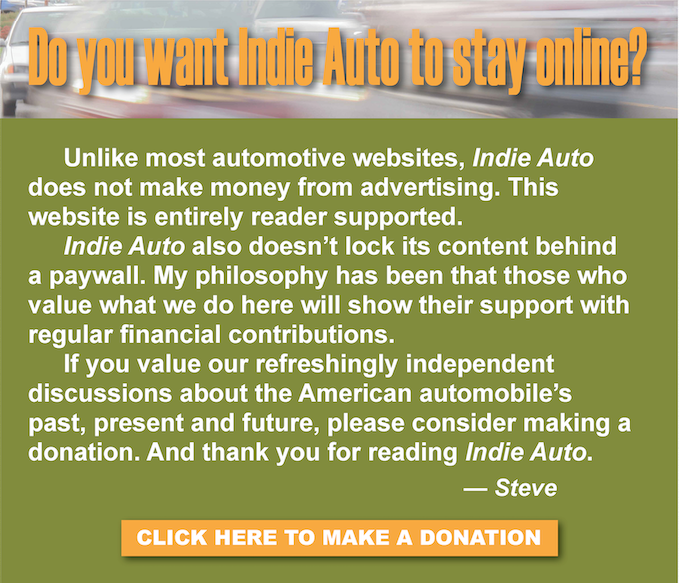
An overwhelming majority of commentators took Keith Crain (2019) to task for a recent Automotive News column where he questioned the viability of a rapid shift to electric vehicles.
“The horse farriers of the 19th century didn’t get the automobile either,” responded Opa Karl. “The planet is dying, Keith,” wrote Stuart51. Henry Ford was quoted by Daniel Kahmke: “If I had asked people what they wanted, they would have said faster horses.”
Also see ‘Keith Crain: They’re coming to take our fast cars!’
Meanwhile, Domenick snarkily posted a cartoon of an old man yelling at a cloud . . . except the cloud was replaced with an electric car. Dato concluded that, “Sometimes, its (sic) best to not argue, and just let the dinosaurs die.”
What incited this unusually strong pushback was a column headlined “EV fever: I just don’t get.” The long-time Automotive News editor-in-chief stated that he didn’t understand how automakers are “willing to bet the farm” on a means of means of propulsion that “consumers have not yet supported in large numbers.”

Crain was correct in saying that nobody really knows how American car buyers will respond to a wave of electric vehicles coming to market in the next few years. However, he insisted that the car-buying public should decide the fate of EVs — “not big governments around the world.”
Clinging to an old-school hostility toward regulation
Opposition to government interference in the marketplace has been a steady theme in Crain’s columns. For example, last November he denounced General Motors for endorsing a federal zero-emissions vehicle mandate and disagreeing with the Trump administration’s proposed rollback of fuel economy standards.
“For GM to invite a bigger government role marks a big and surprising turnaround after years of resisting federal regulations on vehicle safety, emissions and fuel economy standards,” Crain (2018) complained. “GM’s decision is certainly out of character and could diminish its lobbying influence in the future.”
Crain (2018) seemed to be incensed that GM would deviate from what he described as the automaker’s historic stance that “government should not regulate the automobile business more than necessary.”
What Crain appeared to be saying without spelling it out explicitly is that regulations which press the auto industry to emphasize a rapid shift to low- or no-emission vehicles go beyond what is “necessary.”
What then is Crain’s solution for climate change?
What has been missing in Crain’s analysis is a proposed alternative approach to responding to climate change that goes beyond letting buyers decide. Does he honestly think the “magic of the marketplace” is sufficient? Or does he not want to come right out and say that climate change is bunk?
Also see ‘All-time best climate change coverage by auto media?’
It’s time for Crain to put his cards on the table. As Brock Yates once noted, “Bad automobiles came before bad laws” (1983, p. 254). If Crain wants the government to butt out, then how does he see the auto industry contributing its share of greenhouse gas emission reductions?
Perhaps just as importantly, what evidence can Crain point to that would give the public confidence in the auto industry living up to its social responsibilities on this issue?
RE:SOURCES
- Crain, Keith; 2018. “GM’s latest plea for federal help is a mistake.” Automotive News (subscription required). Posted November 5; accessed March 20, 2019.
- ——; 2019. “EV fever: I just don’t get it.” Automotive News (subscription required). Posted March 11; accessed March 20.
- Yates, Brock; 1983. The Decline and Fall of the American Automobile Industry. Empire Books, New York, NY.
PHOTOGRAPHY:
- Author’s photos: ‘Kestner homestead: A window into the past’








Be the first to comment